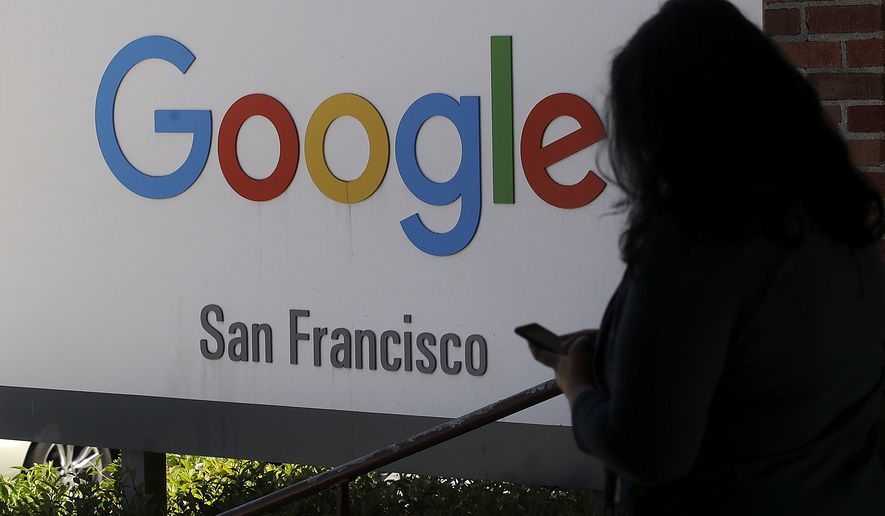When lawmakers as ideologically divided as Republican Sen. Josh Hawley and Democratic Sen. Elizabeth Warren agree that your industry has become too powerful, you could be in trouble, and that’s the problem facing Big Tech.
The House Judiciary Committee is drawing support from both sides of the aisle after announcing Monday that it planned to investigate “the market power held by giant tech platforms,” which coincided with reports that the Justice Department and Federal Trade Commission would pursue their own probes.
The growing chorus of concerns about the muscle of the top tech companies — Amazon, Apple, Facebook and Google — extends to Silicon Valley, said Mitch Stoltz, senior staff attorney at the Electronic Frontier Foundation.
“I’m here in San Francisco. There’s nary a person who doesn’t think there are problems, and that they are at least in part problems of monopoly,” Mr. Stoltz said. “Not entirely — this is not the cause of nor the solution to all of the problems with the internet today — but it’s a factor. Everyone here recognizes that, including some Google, Facebook, Amazon employees.”
Tech stocks rebounded after a drop Monday following the House Judiciary Committee’s announcement. The big four companies were quiet on the antitrust investigations with the exception of Apple CEO Tim Cook, who denied his company was a monopoly.
“If you look at any kind of measure about is Apple a monopoly or not, I don’t think anybody reasonable is going to come to the conclusion that Apple is a monopoly,” Mr. Cook told CBS News.
The moves to examine the tech companies for suspected antitrust violations come as a pivot from four decades of relative calm on the antitrust front. The last company to be broken up by the federal government was Bell telephone in 1982.
In Europe, however, Google has been slapped with billions of dollars in fines, most recently a $1.7 billion fine in March for antitrust violations stemming from its online advertising practices, which the company has appealed.
Similar concerns are growing in Congress, where alarms about privacy, ideological bias and anti-competitive practices are being sounded on the right and left and peeling off some of the tech industry’s political allies.
President Trump has raised antitrust concerns about the U.S. tech industry. So has one of his biggest critics, Ms. Warren, who is seeking the 2020 Democratic presidential nod.
She posted a billboard Monday in New York City that said, “Break Up Big Tech.” Mr. Hawley, Missouri Republican, said a Justice Department investigation was “big news, and overdue.”
“You’re not seeing a divide between conservatives and liberals,” said Maurice Stucke, professor at the University of Tennessee School of Law. “I think what you’re seeing on both sides is a distrust of the concentration of power.”
Rep. David N. Cicilline, Rhode Island Democrat, said the investigation would be led by the antitrust subcommittee, which he chairs, and that it was not focused on a particular company but “on the marketplace.”
“It’s really to look at the behavior of these very big technology companies,” Mr. Cicilline said on CNN. “Are they engaged in anti-competitive behavior? Are they respecting the privacy of users? Are they discouraging innovation and entrepreneurship?”
Could a breakup be looming? Mr. Cicilline said such speculation was “much too early” and that “Congress doesn’t actually have the ability to break up a company, obviously.”
At the same time, he said, “Nothing’s off the table in terms of the final resolution.”
The Justice Department and FTC investigations could take years. The DOJ’s antitrust arm would investigate Google and Apple, while the FTC would have jurisdiction over Facebook and Amazon, according to multiple media outlets.
Sounding a note of caution was Rep. F. James Sensenbrenner Jr., Wisconsin Republican, who sits on the antitrust subcommittee and warned about jumping to conclusions.
“As the world becomes more dependent on a digital marketplace, we must discuss how the regulatory framework is built to ensure fairness and competition,” Mr. Sensenbrenner said in a statement. “I believe these hearings can be informative, but it is important for us to avoid any predetermined conclusions.”
Sen. Dianne Feinstein, California Democrat, whose constituency includes Apple, Google and Facebook, said she was pleased to see the hearings on issues such as privacy, criminal activity and hate speech but warned against targeting a handful of firms.
“It’s important, however, that the focus be broader than just a few companies,” she said. “We should examine industrywide practices and enforcement improvements that benefit the American public as a whole. I look forward to that process moving forward.”
The digital communications industry spent a record $77.9 million on lobbying in 2018, according to the Center for Responsive Politics.
Others, including Sen. Mark R. Warner, Virginia Democrat, have raised questions about whether breaking up U.S. tech companies would empower Chinese digital giants such as Alibaba.
“I have some concern, as somebody who is very concerned about the rise of China, that if we were to kind of chop off the legs of Facebook and Google, that they might be replaced by Alibaba, Baidu, Tencent — companies that are totally enmeshed with the Chinese government in their global economic plan, ” Mr. Warner told CNBC in April.
• Valerie Richardson can be reached at vrichardson@washingtontimes.com.




Please read our comment policy before commenting.